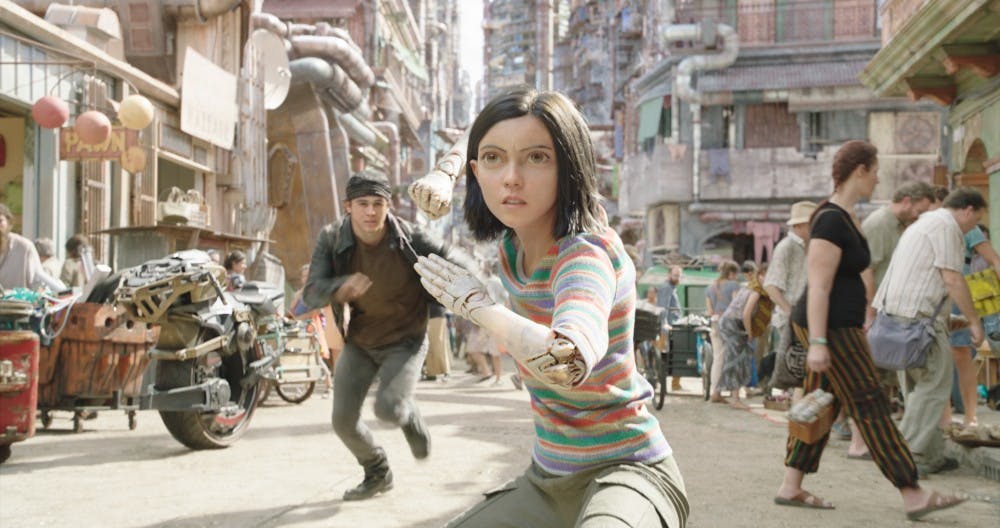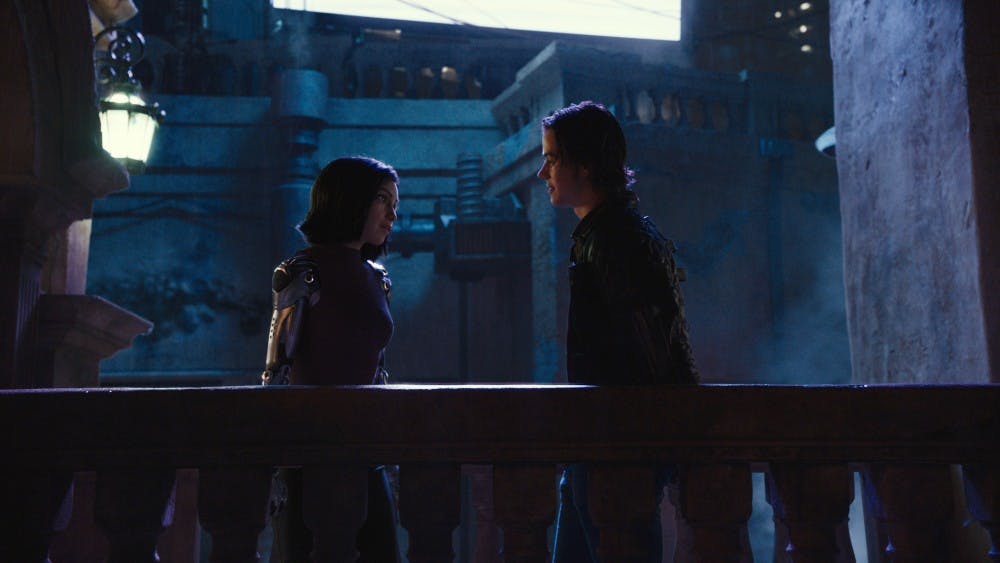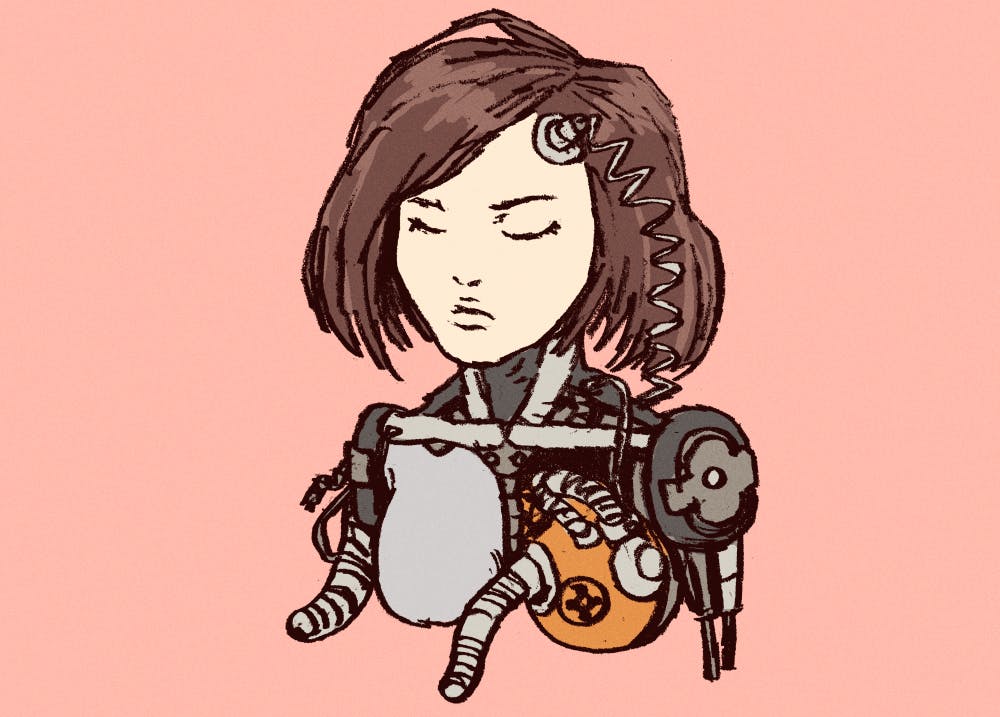Adapting a film from an already–established bank of source material can be either a blessing or a curse. In Alita: Battle Angel’s case, it’s the latter. Alita tells the story of Alita (Rosa Salazar), a warrior cyborg found nearly demolished in a scrapyard and brought back to life by Dr. Ido (Christoph Waltz). As Alita explores her new home in Iron City, she searches for answers to her forgotten past and falls in love with Hugo (Keean Johnson), a human boy.
Alita: Battle Angel is an adaptation of the manga Gunnm, a nine–volume epic by Yukito Kishiro with two sequel series. Gunnm sets Alita up for success. Kishiro has already created a robust world to fuel any Alita narrative, and Alita herself embodies decades of storytelling to become the nuanced character that Gunnm fans cultishly love. Alita tries to be a respectable homage to Gunnm by including everything it could possibly weave into the film—Zalem, Ido, the world of hunter–warriors—but ends up as a messy, confusing cesspool of numerous storylines with huge potential, but absolutely no development.

Photo Courtesy of Twentieth Century Fox
Dr. Dyson Ido is the most obvious victim of Alita’s incoherence. Ido is the one who finds Alita and gives her a body to live in. He becomes Alita’s father figure, and pieces of his past and current traumas are revealed throughout the film. He named Alita after his dead daughter, he kills criminals as a way of facing his grief over the late Alita, and he isn’t actually from Iron City: this is the extent of information we’re given about Ido in Alita, and all of it is spoon–fed to the audience through half–assed heart–to–hearts between Ido and Alita (the cyborg, not the daughter). Nothing more about Ido is expanded upon: his job as a nighttime killer is forgotten once Alita becomes more interested in Motorball—Iron City’s reigning sport—than in proving herself as a capable fighter to Ido, and his daughter isn’t mentioned again after her existence is revealed (Confused? Me too).
Ido’s character is meant to be developed, and he’s meant to impact Alita in some way. His emotional traumas are so obviously unresolved, but the movie never gives him the chance to grow. Alita herself doesn’t even acknowledge his role in the story. Sure, she finally calls him “father” at the end of the movie (sweet bonding moment, guys), but so what? What about Alita’s rebellion against Ido as a controlling, imposed father–figure who doesn’t let her go out at night? What about Alita’s refusal to play the role of Ido’s daughter back–to–life and pursuit of her own hunter–warrior career? Why is all of this forgotten the moment Alita falls in love with Hugo? Because if there’s anything that’s over–developed in Alita, it’s the romance.

Photo Courtesy of Twentieth Century Fox
Alita and Hugo, cyborg and meat boy. “You are the most human person I’ve ever met,” Hugo says to Alita, right before they kiss. Cheesy, sweet (I guess), and unnecessary, Alita is a love story. That’s why it was released on Valentine’s Day—something I couldn’t understand until I actually sat through the movie, because it shouldn’t have been a love story. The first hour of Alita is spent on rich worldbuilding, characterizing Iron City with gladiatorial, violent Moterball, dog–eat–dog hunter–warriors, and teenagers rampaging streets at night for sellable cyborg parts. Then, the second hour devolves into a haven’t–I–seen–this–before YA romance film. Everything Alita does from the moment she kisses Hugo is for Hugo, and at one point, I couldn’t help but wonder if Alita: Hugo’s Girlfriend might’ve been a more appropriate title for the film.
I’m not condemning romance in sci–fi. Romance can be spun into bustling, cyberpunk worlds like Alita’s beautifully (ex: Blade Runner 2049), but it cannot detract from, or become, the center of such a world if the world is not built up around it. Iron City was not created to be the setting of Alita and Hugo’s love story. Iron City was created to challenge Alita and force her to fight her way out, rediscovering her individuality and honing her survival skills.
It’s not that Hugo didn’t deserve a role in Alita’s story, it’s that his role was much too big. In making Alita a forgettable Valentine’s Day flick, everything it could’ve been, and everything Alita could’ve been, now lays buried under mountains of sore disappointment.

